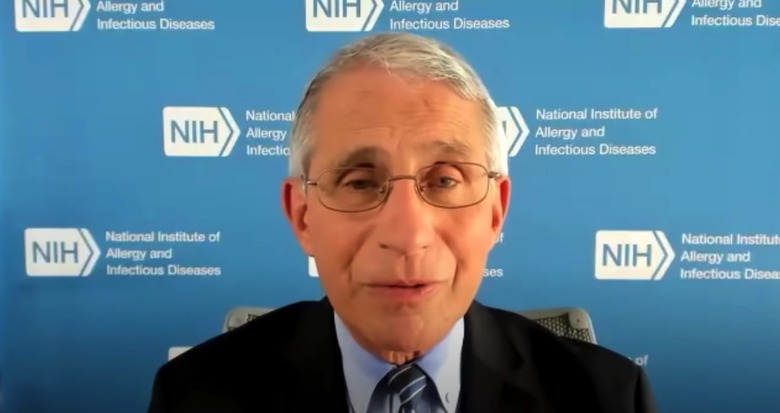Dr. Fauci Has Some Bad News For Recovered Coronavirus Patients
- Coronavirus patients who do not require hospitalization can still experience a number of long-term health issues.
- Doctors are already finding that otherwise recovered coronavirus victims tend to experience lingering symptoms such as fatigue, breathing issues, and a host of cardiovascular problems.
- A recent CDC report found that one-third of coronavirus patients endure symptoms that don't go away.
One of the scariest things about the coronavirus is that there's still a lot we don't know about how the virus impacts victims in the longterm. And because the coronavirus can sometimes attack a victim's organs, it's entirely possible that a coronavirus infection might wreak havoc on a person's body in unforeseen ways years down the line. We're already starting to see this scenario play out amongst a small percentage of coronavirus patients who, even months after recovery, still experience lingering symptoms like fatigue and body aches.
The long term impact of the coronavirus has become more of an issue in recent weeks now that schools are opening back up. While people who advocate schools opening back up tend to argue that kids and teenagers typically don't experience severe coronavirus symptoms, it remains unclear what type of problems, if any, a positive diagnosis might cause later on.
Touching on this issue, Dr. Anthony Fauci earlier this week warned that it's naive and dangerous to think that a coronavirus diagnosis isn't a big deal if it doesn't involve hospitalization.
"We'd better be careful when we say 'Young people who don't wind up in the hospital are fine, let them get infected, it's OK.' No, it's not OK," Fauci explained during a briefing earlier this week.
"In individuals who are young and otherwise healthy," Fauci added, "who don't require hospitalization but do get sick and symptomatic enough to be in bed for a week or two or three and then get better, they clear the virus – they have residual symptoms for weeks and sometimes months."
Fauci, in remarks picked up by CNN, specifically categorized the situation as "troublesome" while adding that otherwise recovered COVID-19 patients "have a substantially high proportion of cardiovascular abnormalities, evidence of myocarditis by MRI and PET scans, and evidence of emerging cardiomyopathies."
Some doctors who treat coronavirus patients have also observed a number of other ailments that keep recurring in otherwise recovered patients, including fatigue, trouble breathing and reduced lung capacity, general aches and pains, and even cognition issues in some cases.
Compounding matters is the fact that the coronavirus pandemic has only been around for a few months, which is to say that we still don't know if COVID-19 symptoms linger on for months before subsiding or if they persist for years.
"I'll guarantee you if we have this conversation again six months to a year from now, we'll be reviewing the literature about talking about the long-term deleterious effects of non-hospitalized patients," Fauci added
